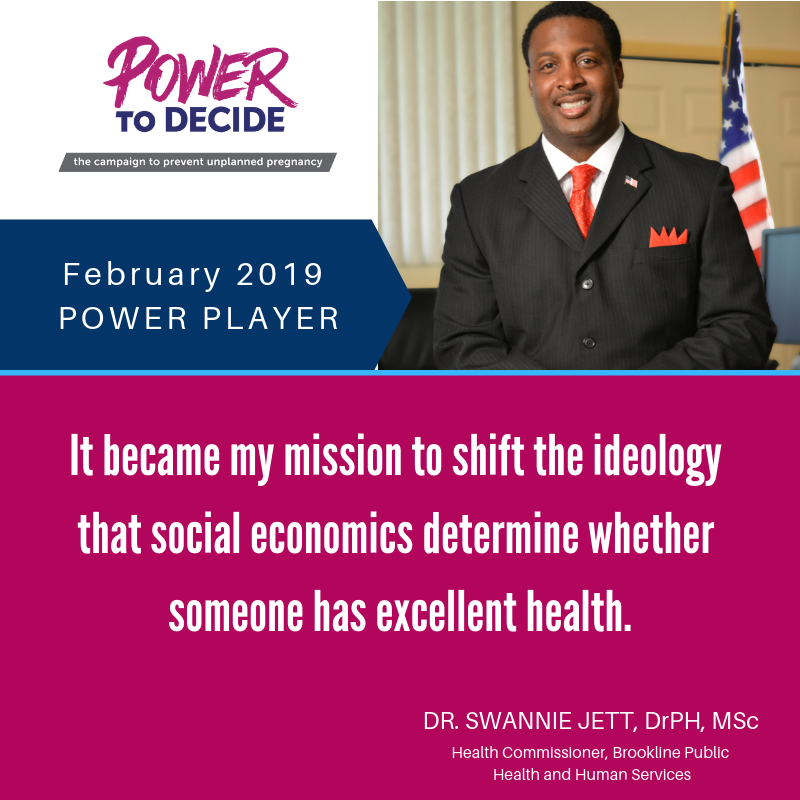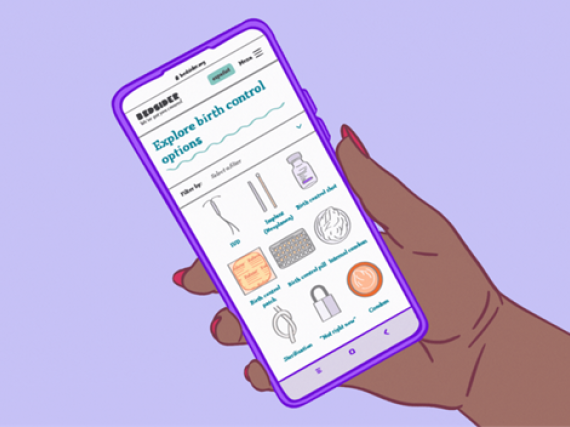February 2019 Power Player
Here at Power to Decide, we are committed to uplifting the many individuals who are on the ground doing the work that matters most. Each month we highlight an individual or organization who is championing the effort to give young people the power to decide if, when, and under what circumstances to get pregnant and have a child. Check out this month's Power Player profile.
Dr. Swannie Jett, DrPH, MSc
Health Commissioner, Brookline Public Health and Human Services
What work have you done to ensure that young people have access to high-quality sexual health information or high-quality contraceptive services so that they can decide if, when, and under what circumstances to get pregnant and have a child?
Since 2000, I’ve worked within local health departments to provide high-quality contraceptive services. If services are not available, I connect them to local resources such as Planned Parenthood. In Communities such as Seminole County, FL, Louisville and Shepherdsville, KY, I ensured parents had the proper resources available regardless of income. In Shepherdsville, I collaborated with a local non-profit to provide contraceptive services to high school boys including education about sexual health. In Seminole County, I focused on building a relationship with True Health (a Federally Qualified Health Center) and the Healthy Start Coalition to assist families with resources for decisions on health.
How did you get started in your field? What is your driving force?
My career began at Louisville Metro Public Health as an Environmental Health manager. Within the first two years, I was promoted to Site Director for the Healthy Start Program at Shawnee High School. The Healthy Start Program worked to reduce infant mortality rates among African-Americans in a West Louisville neighborhood. In 2003, I oversaw clinical operations and created the Office of Men’s Health where through clinical operations we provided family planning services and primary care to youth and adults. Establishment of the Office of Men’s Health at the local level was important to me at the time, because none existed at any level of government. At this pivotal point in my career I realized how much the health department positively impacts people’s lives. It became my mission to shift the ideology that social economics determine whether someone has excellent health.
What advice would you give to someone looking to effect change in the field that you currently work in?
My advice would be to become a student of public health through constantly reading, studying research, and developing ideas. Never be afraid to be an innovator and be progressive despite the barriers that may exist. Be bold! Society has greatly improved over time due to risk takers and innovators willing to challenge the status quo.
Why should someone care about ensuring that all people—regardless of who they are or where they live—have access to the information and contraception they need to live their best life story?
We live in a democratic society where we should respect people and diversity, while embracing our differences to continue to improve life on earth. Providing individuals with information and resources helps them to make decisions instead of impeding them. Everyone should have access to healthcare no matter where they live or how much money they make. We should also be cognizant of healthcare delivery and health inequities, because we as nation pay in many ways for failing to keep citizens healthy.
Is there a highlight of your work in conjunction with our organization that you’d like to share?
My highlight in working with Power to Decide is the engagement with leading experts in the field and creating strategies for the Reproductive Well-Being Toolkit. The Health Equity strategy is an important approach to reducing implicit and explicit bias toward reproductive health and allows individuals the ability to determine when to have a child. It’s important that we continue to reduce health inequities that impact people’s lives.
*Responses have been edited for clarity



